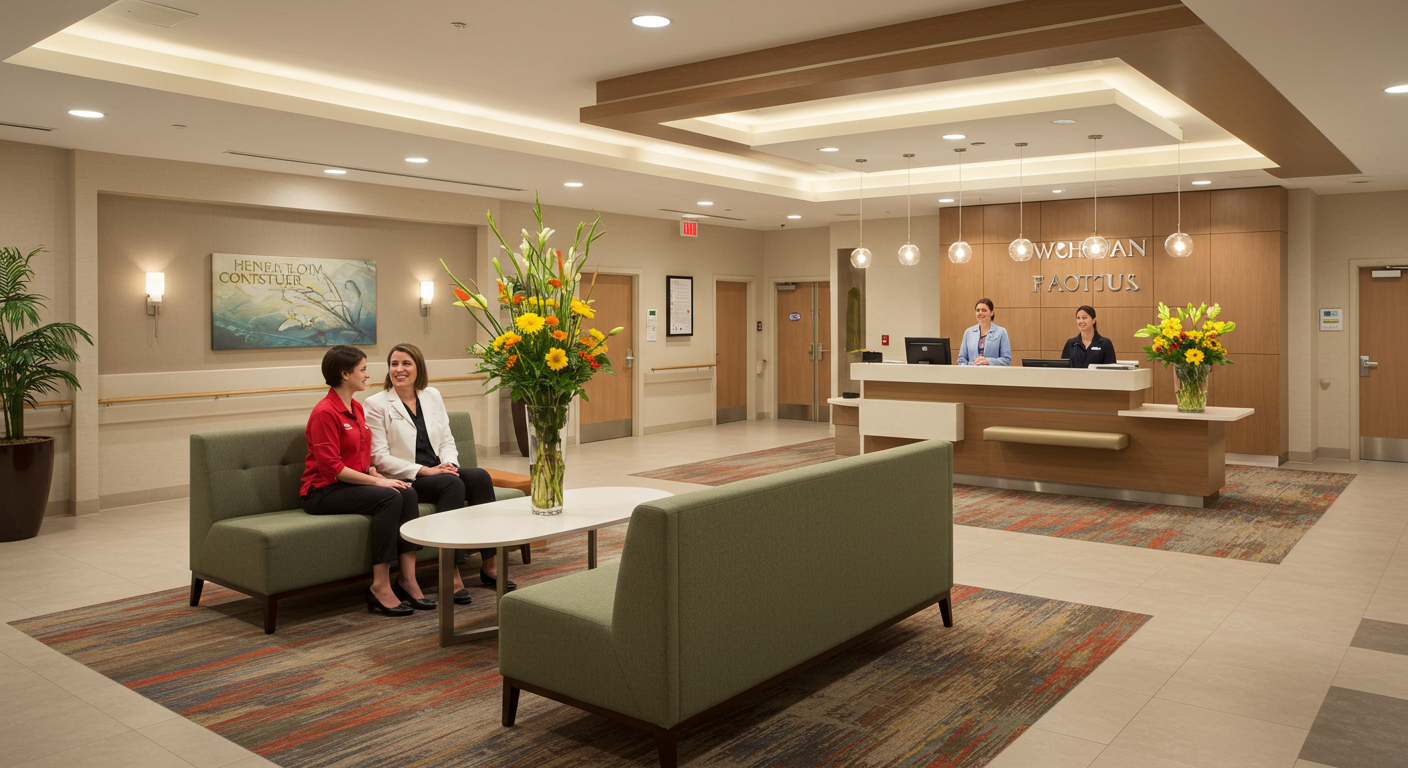Blog

Healthcare is Becoming Hospitality—Are You Ready?
For a long time, healthcare has been considered primarily in a clinical and transactional manner. Patients seek diagnosis or treatment for a specific health problem, doctors and other clinical staff deliver care, and that’s where the cycle ends. Things are changing, though. Healthcare is gradually becoming a hospitality and focuses on patient experience as one of its main goals. This article sheds more light on such an important subject and shows how healthcare is becoming hospitality.
Table of Contents
Healthcare is Becoming Hospitality—Are You Ready?
Hospitality mindset in healthcare
Why is healthcare becoming hospitality
Hospitality mindset in healthcare
The main characteristic of the hospitality industry is that customer experience is everything. Every aspect, from the moment a guest enters through the door to the moment they leave, is carefully organized to provide comfort, trust, and ultimately satisfaction. This same philosophy is making its way into the healthcare industry as well.
Patient choice and online reviews can influence reputations, which is why hospitals, clinics, and private practices are investing in strategies that prioritize both clinical outcomes and patient experiences in general.
Keep in mind that hospitality isn’t necessarily about luxury amenities, it’s primarily about anticipating the needs, personalizing care, and creating an environment where patients and their families feel safe, valued, and respected. In a healthcare setting, hospitality elements may include shorter wait times, better communication, more comfortable surroundings, coordinated care, and an empathetic approach from clinical staff.
One major aspect of hospitality in healthcare is to extend patient experience to human experience. The goal is to think of the totality of environmental aspects that are levers to improve a hospital visit experience. The supportive care framework deconstructs the patient experience and targets diverse needs that patients encounter during their journey e.g. in cancer treatment. These needs may be informational, emotional, practical, spiritual, social, psychological, and physical.
Although further research on this subject is necessary, current evidence confirms that adopting a patient hotel model in terms of cost and patient satisfaction exhibits positive effects. While it’s not just about rooms, research does show that the hospitality model in healthcare is beneficial to patients, nurses, and healthcare providers.
A study that explored Qatar’s journey to integrating hospitality into healthcare showed that this approach fosters inclusivity and cultural sensitivity too. Integrating hospitality principles into healthcare encourages a patient-centered and professional environment that other healthcare systems, especially in multicultural settings can adopt.
Why is healthcare becoming hospitality
Healthcare is gradually becoming hospitality in a way that focuses on patient experience and satisfaction through comfort and effort to meet the specific needs of each patient. The question remains – why now? Why the shift toward hospitality elements in healthcare? Several factors played a role, some of them are described below.
Evolved expectations
Patients today are informed, and empowered, and they demand better experience and treatment in hospitals and clinics. Since they are accustomed to convenience and personalization in retail, travel, and tech sectors, they expect similar services from healthcare professionals. A person who seeks treatment for a certain health problem doesn’t only want to be viewed as a “patient”, they want to be viewed as human beings. Not only do they expect fair treatment in a clinical setting, but also need seamless, transparent, and human-centered interactions. These expectations have nothing to do with luxury, and everything to do with basic improvements in healthcare that mean the world to patients and their families.
Competitive market
Healthcare is a competitive market, which benefits consumers because it helps contain costs, encourage innovation, and improve quality. Private health systems, urgent care centers, telehealth platforms, and wellness-focused clinics have made the healthcare industry more competitive than ever. For that reason, hospitals and other institutions can no longer rely solely on clinical expertise to retain patients. Although the quality of care is essential, other factors are also important. These include friendliness of clinical staff, physical environment, wait times, and communication clarity. People appreciate hospitals and clinics that offer both – clinical expertise and factors that improve their overall experience.
Value-based care
The term value-based care refers to care that focuses on quality, provider performance, and the patient experience. It rewards patient outcomes and quality of care, managing a population rather than transactional care. Value-based care calls for healthcare providers to focus on the patient experience in general, including their emotional well-being and satisfaction. These values directly influence recovery, compliance, and long-term health.
Online reviews
People love expressing their opinions online, which is why they leave reviews on products they buy or services they use. This trend of leaving reviews also spilled over to the healthcare industry. Nowadays, patients describe their experiences with doctors, hospitals, and everything else in a clinical setting. These reviews are important to patients because they consider them when choosing their care. Online reviews are yet another reason the healthcare industry can’t rely on clinical expertise but should focus on improving the quality of their experience too. Reputation depends on hospitality alongside technical excellence.
How hospitality in healthcare looks like
As mentioned above, hospitality in healthcare isn’t about luxury, but about making patient lives easier and more comfortable. Hospitality in healthcare is observed through several aspects including:
● Warm and welcoming interior
● Quiet, private rooms whenever possible
● Accessible layouts for diverse mobility needs
● Frequent updates during care transitions
● Clear communication
● Empathetic, active listening by clinical staff
● Personalized attention in terms of dietary preferences, cultural sensitivities, and lifestyle choices
● Online scheduling and virtual check-ins
● Telehealth appointments
● Empathy, emotional intelligence, and service excellence
Even though hospitality is becoming an important part of healthcare, there’s still a long way to go in this department.
Conclusion
Healthcare and hospitality aren’t separate entities. Hospitality has become a major part of the healthcare industry because clinical expertise isn’t the sole goal only. In addition to clinical expertise, healthcare settings are also striving to improve overall patient experience through slower wait times, more empathy, personalized care, and clear communication. This approach brings the healthcare industry closer to people because they feel safer and more valued.
References
https://pmc.ncbi.nlm.nih.gov/articles/PMC10105661/https://pubmed.ncbi.nlm.nih.gov/31211929/https://pmc.ncbi.nlm.nih.gov/articles/PMC11775285/https://www.ftc.gov/advice-guidance/competition-guidance/industry-guidance/competition-health-care-marketplacehttps://www.cms.gov/priorities/innovation/key-concepts/value-based-carehttps://www.medicaleconomics.com/view/online-reviews-are-becoming-more-important-to-patients-in-choosing-their-care-how-to-manage-your-online-reputation-in-health-care

Transformative Healthcare Solutions
Changing Lives, Shaping Futures
Toll Free: (888) 743-0244
Local: (954) 858-5511
Fax: (954) 858-5510
Quick Links
Resources
Connect With Us
© 2025 Transformative Healthcare Solutions All Rights Reserved
